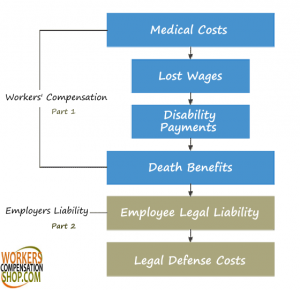One of the first accounts I ever quoted was for a janitorial cleaning company. This company really stuck out to me. The client called me bright and early one morning looking for a workers compensation quote. It was a commercial cleaning company and when I started the quoting process, I realized there was much more to this risk than I actually thought. I noticed commercial janitorial cleaning was actually a very popular risk to insure, but sadly not many people know how to do it. It is not a difficult risk to write, but some might find all the questions to be rather nerve racking. So allow me to help you out!
If you are thinking about getting workers compensation for your own janitorial cleaning company, you need to first ask yourself these fundamental questions.
1) Will you be doing residential or commercial janitorial cleaning?
* There is a huge difference between commercial cleaning and residential. Commercial consist of any legal business, office, or sometimes contracted apartment cleaning (if the resident has moved out and you are cleaning it for the next resident.) Residential cleaning is basically any home that is occupied by residents.
2) What will you be cleaning?
* It is very important to tell your insurance agent exactly what you will be doing. For example: We will need to know if you are leaning window or gutters. If so, we will need to know how you get to the gutters. What will be the maximum height you will go to, to do the cleaning? If you are moving furniture around.
3) How many employees will be on location?
* Since workers compensation is based off the employees’ payroll, it will be beneficial to tell your agent how many employees you will have at each location.
4) What chemicals will you be using?
* If you are using any type of harsh chemicals to clean with, then you should explain to the agent what the chemicals are and how you will be handling them.
5) What will be the travel exposure between job locations?
* This is a very important question. Your agent will need to know the estimated miles between job locations.
6) What safety program do you have in place?
* This is something you should always have no matter the job. It is critical you have a safety program in place.
These are some of the questions I always ask my clients. It is very critical to know exactly what the janitorial company does.
Now like all other workers compensation quotes, the agent will need to know employee count and payroll for each employee. If you have employees doing jobs other than janitorial cleaning, then you need to explain what those employees will be doing. After you have answered all those questions, then you will be ready to get started on the workers compensation quote.
Now I also want to share a piece of knowledge I learned while quoting janitorial companies. If you are seeking General Liability for your business, then here is a good piece of information that you want to ask your agent. A lot of janitorial businesses are trusted with a key to get into the building. Now if you have a lot of contracts with different locations, then you probably have several keys. Here is the gem I told you about, you need to ask your agent for ‘Lost Key Coverage.” Lost Key Coverage will be an endorsement added to your general liability policy that will pay to replace all the keys you have lost or were stolen. Having the locks replaced for 25 different businesses is very expensive. So if I were you, I would make sure that my general liability policy has lost key coverage or something very similar to it.
**There are also Janitorial Surety Bonds. These bonds will protects the insured’s clients, if one of your employees were to steal from the client. The employee must be convicted before any coverage will be applied.




